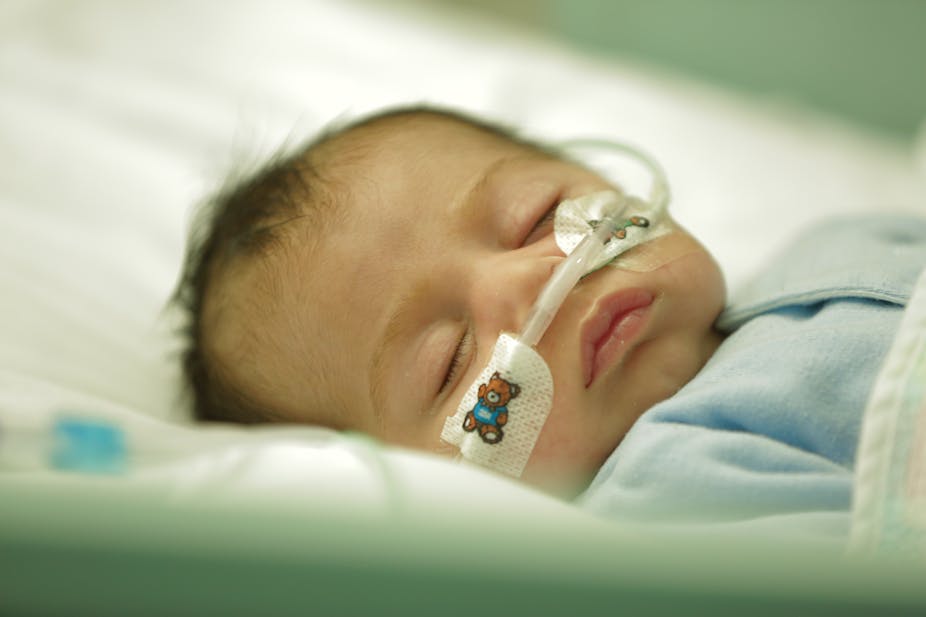In April 1939, measles was coursing through the industrial suburbs of North Melbourne, Carlton and Fitzroy, but the city medical officer assured the public it was not severe. He noted there had been just over a 1000 cases, only one of which was fatal, and enough children from the area had previously been infected to limit the outbreak.
In April this year, an outbreak of measles peaked in South Wales (in the UK) at just over 1000 cases, with one possible fatality. Anxiety has been high, and made evident in the outbreak being reported around the world.
The latest cases weren’t confined to what were once called “the industrial suburbs”. Professor John Ashton, the spokesman for public health doctors in England and Wales, warned of the potential for “reservoirs of disease” in private schools.
Here were concentrated not the dirty and underfed who were traditionally accused of being reservoirs of infectious disease, but the privileged whose parents considered them too precious to jab.
Anti-vaccinationism has a long tradition in Britain, but less so in this country. Immunisation rates here are higher than in the United Kingdom, but fringe opposition has persisted in the “alternative” middle class.
Addressing fear
More significantly, there are many concerned parents who do the right thing, yet remain unsettled by stories of adverse reactions.
Sonya Pemberton’s fine documentary Jabbed: Love, Fear and Vaccines, airing on SBS on Sunday, is aimed at just those worried parents. These are the people who know enough to trawl alarming websites, and who take the health of their families very seriously. Their problem is a problem with science, and science has a something of a problem with them.
Jabbed starts at the bedside of a tiny baby gasping for air from whooping cough, contracted when he was seven weeks old, one week before he was due for his first immunisation. His terrible illness was indirectly the fault of those who had failed to have their own children immunised, leaving an ecological niche for pertussis.
Those who have rejected the jab are not consciously culpable, but they have broken the circle of safety for everyone else by creating a reservoir of immunologically naive hosts.
The documentary carefully works through the science and human stories, using new medical findings to deconstruct and explain cases of alleged vaccine side effects — such as the triggering of a rare congenital epilepsy and the death of a child born without a spleen, discovered upon autopsy. But it says little about the social ethics of vaccinations.
It tackles the problem with reason and evidence, as it should. Cleverly it includes the Queen Elizabeth’s homeopathic physician advising immunisation. It takes us to a fascinating research group at the London School of Hygiene and Tropical Medicine that works on the dissemination of pseudo-science and panics on the web. We learn much, implicitly, about the cognitive deficit of the non-compliant.
But, on the ethics, it remains silent.
Advances in mortality
Historically, the modern state owes most of its powers in everyday life to the exigencies of public health. These we largely take for granted and accept as necessary to secure freedom from disease and premature death rather than as intrusions on our autonomy.
We have relinquished the freedom to relieve ourselves in public places, of selling adulterated food and drink, of employing young children, and of extracting profit by subjecting our employees to degrading and unsafe workplaces. All these were freedoms taken away by the British state in the 19th century in the interests of the greater good.
Indeed, the great fall in mortality from infectious diseases occurred before antibiotics and immunisation because of such measures. But this was only in the highly urbanised west, and it had everything to do with the rise of state regulation, medical advances and improving living standards driven by political and industrial agitation.
But some still died, became blind, or deaf or both.
The critical difference immunisation makes is that it can eliminate a disease - so no one dies and no one is maimed. It is one of many reasons why impoverished, politically oppressed Cubans live as long as Americans.
But in the 64 years since that outbreak of measles in the slums of Melbourne, widespread immunisation has made us complacent about infectious diseases.
The freedom to dissent on immunisation can cause harm to others, so it impinges on their liberty and safety. It might seem like a small thing, but it was not to the parents of the baby boy gasping for breath because of whooping cough.
Infectious disease affect everyone, no matter how privileged or risk averse. Perhaps those who dissent can continue to do so provided they guarantee that only their own children will be harmed.
Genepool Productions’ Jabbed: Love, Fear and Vaccine airs at 8:30pm on Sunday May 26, 2013.

